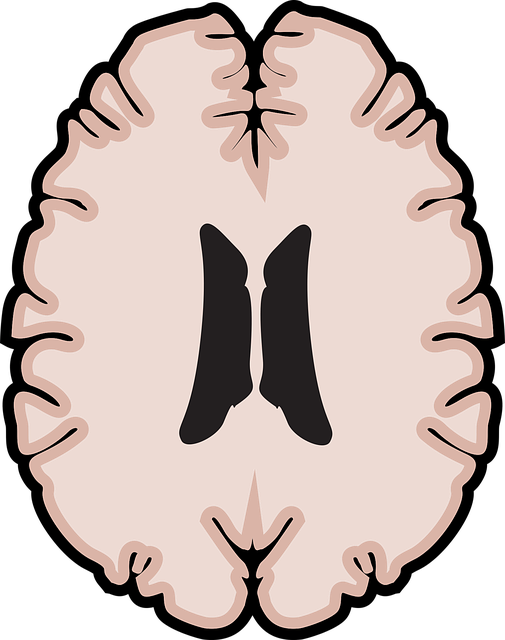Northglenn Interpersonal Issues Therapy (NIIT) promotes positive thinking and mental wellness through structured conversations, social skills training, and a podcast series. Daily exercises like journaling, affirmations, and meditation, advocated by NIIT professionals, reduce stress, anxiety, and depression while boosting resilience, self-esteem, and coping abilities. These practices lead to improved emotional regulation, gratitude, and a more balanced outlook on life, even in challenging situations.
Positive thinking exercises have emerged as a powerful tool for enhancing mental health and overall well-being. In this article, we explore the transformative potential of positive thinking and its impact on our minds. We delve into the role of Northglenn Interpersonal Issues Therapy, a leading approach in promoting a positive mindset. Through practical implementation strategies, learn how to integrate daily positive thinking exercises into your routine. Additionally, discover ways to overcome challenges and sustain a positive outlook.
- Understanding Positive Thinking and its Impact on Mental Health
- The Role of Northglenn Interpersonal Issues Therapy in Promoting Positive Thinking
- Practical Implementation Strategies for Daily Positive Thinking Exercises
- Overcoming Challenges and Sustaining a Positive Mindset
Understanding Positive Thinking and its Impact on Mental Health

Positive thinking is a powerful tool that can significantly impact an individual’s mental health and overall well-being. It involves cultivating a mindset focused on optimism, gratitude, and the belief in positive outcomes. When individuals embrace positive thinking, they are essentially training their minds to filter out negative thoughts and replace them with constructive ones. This simple shift can lead to substantial improvements in managing stress, anxiety, and even depression, which is why Northglenn Interpersonal Issues Therapy often incorporates these techniques into their therapeutic practices.
By fostering a positive mindset, individuals can enhance their resilience, boost self-esteem, and improve their ability to cope with life’s challenges. It empowers people to reframe negative situations as opportunities for growth and learning. Incorporating daily positive thinking exercises, such as journaling, affirmations, or mindful meditation, can contribute to burnout prevention and promote a healthy Self-Care Routine Development for Better Mental Health. These practices encourage individuals to recognize their strengths, appreciate the good in their lives, and cultivate a sense of hope and optimism, ultimately leading to improved mental health outcomes.
The Role of Northglenn Interpersonal Issues Therapy in Promoting Positive Thinking

The Northglenn Interpersonal Issues Therapy (NIIT) plays a pivotal role in promoting positive thinking and enhancing overall mental wellness. This therapeutic approach is designed to help individuals navigate and resolve interpersonal conflicts, fostering healthier relationships and communication patterns. By engaging in NIIT, clients develop essential skills for self-awareness exercises, enabling them to identify and challenge negative thought cycles. Through structured conversations and support from trained therapists, participants learn to reframe their perspectives, cultivating optimism and resilience.
One of the key aspects of NIIT is its emphasis on social skills training, which equips individuals with the tools to navigate social interactions more effectively. This includes practicing active listening, improving assertiveness, and learning to manage emotions during challenging conversations. Additionally, the therapy incorporates the production of a Mental Wellness Podcast Series, providing a creative outlet for clients to share their journeys, offer insights, and inspire others in similar situations. This multimedia approach diversifies the therapeutic experience, making it engaging and accessible to a wider audience.
Practical Implementation Strategies for Daily Positive Thinking Exercises

Implementing daily positive thinking exercises is a powerful way to enhance mental wellness and emotional regulation, as supported by Northglenn Interpersonal Issues Therapy professionals. To make this practice sustainable, start by incorporating short, mindful moments throughout your day. This could be as simple as pausing for a few minutes each hour to reflect on something you’re grateful for or practicing deep breathing exercises when feeling stressed. These small, consistent actions create a foundation for positive thinking.
Consider using structured techniques like gratitude journaling, where you write down three good things that happened each day. This Coping Skills Development tool not only promotes positivity but also helps in shifting your focus towards the good in life. Additionally, set reminders or use apps designed to encourage mindfulness and positive affirmations. With time, these strategies can become an integral part of your routine, leading to improved emotional resilience and a more balanced outlook on life.
Overcoming Challenges and Sustaining a Positive Mindset

Overcoming challenges is a vital part of sustaining a positive mindset, especially for individuals navigating interpersonal issues. Through Northglenn Interpersonal Issues Therapy, clients are empowered to confront and manage obstacles that may hinder their mental well-being. This therapeutic process encourages active problem-solving skills and fosters resilience. By learning effective communication strategies, one can navigate difficult conversations with greater ease, reducing the stress and anxiety often associated with interpersonal conflicts.
Moreover, integrating positive thinking exercises into daily routines plays a significant role in risk management planning for mental health professionals. These practices help individuals reframe negative thoughts and cultivate gratitude, thereby promoting emotional regulation. The continuous practice of positive affirmations can significantly impact one’s overall outlook on life, making it easier to cope with challenges as they arise. This proactive approach not only enhances personal growth but also strengthens the ability to maintain a positive mindset even in the face of adversity.
Implementing positive thinking exercises, with support from approaches like Northglenn Interpersonal Issues Therapy, can significantly enhance mental well-being. By integrating practical strategies into daily routines, individuals can overcome challenges and cultivate a more optimistic mindset. This transformative process not only improves overall happiness but also equips people with valuable tools to navigate life’s complexities, fostering resilience and a deeper sense of fulfillment.













